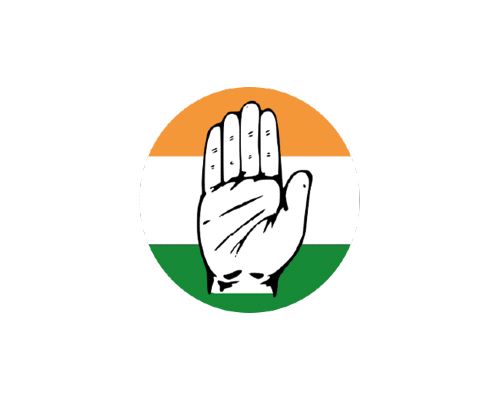Indian National Congress (INC): 10 Key Facts About Its Legacy and Impact on India’s Democracy
The Indian National Congress (INC), one of the oldest and most prominent political parties in India, has played a pivotal role in the history and development of the nation. From being at the forefront of the independence movement to shaping the modern political landscape, the INC has been a cornerstone in India’s journey. This article explores the history, significance, daily life impact, and overall influence of the Indian National Congress, offering a comprehensive overview of its profound impact on Indian society.
History of the Indian National Congress (INC)
Founded in 1885 by Allan Octavian Hume, the Indian National Congress was originally established as a platform for the political voice of Indians under British colonial rule. The party’s initial goal was to secure more representation for Indians in the British government, but over time, it became the leader of the freedom struggle, with figures like Mahatma Gandhi, Jawaharlal Nehru, and Subhas Chandra Bose shaping its ideology and direction.
The INC played a central role in organizing campaigns against British rule, such as the Non-Cooperation Movement (1920-1922) and the Quit India Movement (1942). The party’s leadership, particularly Gandhi’s call for non-violent resistance, was instrumental in mobilizing millions of Indians to demand independence.
The Indian National Congress emerged victorious in 1947, when India gained its independence from Britain. The first Prime Minister of India, Jawaharlal Nehru, was from the INC, and the party continued to dominate Indian politics for several decades, guiding the newly independent nation toward development.
Daily Life Impacts of INC
The daily life of Indian citizens has been deeply impacted by the policies and governance of the INC. Under its leadership, India adopted a democratic constitution in 1950, which enshrined the rights and freedoms of the people. The INC’s policies of land reform, industrialization, and infrastructure development shaped the modern Indian state.
In the early years after independence, the INC focused on nation-building, promoting unity in a diverse and newly independent country. Under Nehru’s leadership, the INC prioritized social reforms, the establishment of educational institutions, and the industrialization of the economy, leading to the creation of nationalized banks and the expansion of public sector industries. These efforts had a lasting impact on India’s economy and society, bringing significant changes to the daily lives of ordinary people.
The Indian National Congress Today
Though the INC is no longer the dominant political force it once was, it remains a crucial player in Indian politics. The party has adapted to changing political dynamics, but it still adheres to its core values of secularism, democracy, and social justice. The Congress has contributed to India’s social, economic, and political development over the years, and continues to play an important role in shaping policies that impact the nation.
While the party’s influence has waned in recent years, it still has a strong base in several states and continues to contribute to national debates, particularly around issues of governance, equality, and social welfare. The Congress remains a party committed to representing diverse voices and pushing for reforms that align with the broader interests of Indian society.
Key Facts About the Indian National Congress
- Foundation: The Indian National Congress was founded in 1885 by Allan Octavian Hume.
- Independence Movement: The INC was instrumental in leading India’s struggle for independence, with significant contributions from leaders like Mahatma Gandhi and Jawaharlal Nehru.
- First Prime Minister: Jawaharlal Nehru, an INC leader, became the first Prime Minister of independent India.
- Secular Ideology: The INC has always promoted secularism and worked toward creating a unified India, where all religions, cultures, and communities are respected.
- Social Welfare: The INC has played a significant role in shaping India’s social welfare policies, including the development of public health systems, educational reforms, and poverty alleviation.
- Modern-Day Influence: While the party’s dominance has decreased, it remains a vital player in Indian politics, especially in states like Rajasthan, Madhya Pradesh, and Chhattisgarh.
- Women’s Empowerment: The INC has been a key player in advocating for the rights of women, with leaders like Indira Gandhi making history as the first female Prime Minister of India.
- Global Leadership: INC leaders have held prominent positions on the global stage, and the party continues to shape India’s foreign policy.
Significance of INC in Society
The Indian National Congress has had a profound impact on the socio-political landscape of India. As the primary political force during the freedom struggle, the INC provided a unified platform for people to voice their aspirations for a free India. Post-independence, the INC played a crucial role in shaping the country’s constitution and establishing democratic institutions that continue to serve the nation today.
The Congress Party also played an essential role in India’s early economic policies, focusing on self-reliance and the development of key sectors like agriculture, education, and infrastructure. Its emphasis on the green revolution and industrialization laid the foundation for India’s emergence as a growing economy.
Additionally, the Indian National Congress has always emphasized social justice, secularism, and inclusivity. The party has been involved in numerous policies aimed at improving the lives of the marginalized and downtrodden, including the Scheduled Castes and Tribes.
Observance and Wishing the Indian National Congress
While there is no specific day to celebrate the Indian National Congress, its founding on December 28, 1885, is an important day for many political leaders, party workers, and Indian citizens who wish to commemorate the history and legacy of the INC. On this day, the party reflects on its contributions to the nation’s independence and its role in building a democratic India.
Wishing the Indian National Congress on its anniversary is a way of honoring the sacrifice, vision, and leadership of the leaders who have shaped India’s journey from colonial rule to independence and its progress in the post-independence era.
FAQs About the Indian National Congress
- What is the Indian National Congress (INC)? The INC is one of India’s oldest political parties, founded in 1885, and was central to the independence movement. It has also shaped India’s post-independence political and social policies.
- Who was the first Prime Minister of India? Jawaharlal Nehru, a leader of the Indian National Congress, became India’s first Prime Minister after independence.
- What role did INC play in India’s independence? The INC led several mass movements against British colonial rule, including the Non-Cooperation Movement, Salt March, and Quit India Movement.
- What are the core values of the INC? The INC adheres to values like secularism, democracy, social justice, and unity in diversity.
- What is the significance of the INC in modern India? Though the INC is no longer the dominant party, it remains vital in the political discourse and continues to play a crucial role in shaping national policies.
Conclusion
The Indian National Congress (INC) has had an undeniable impact on India’s growth and development. From leading the nation’s freedom struggle to shaping modern policies, the party has been a cornerstone of India’s democracy. Despite changes in political dynamics over the years, its legacy continues to inspire citizens and political leaders alike. The INC’s focus on secularism, social justice, and unity has left a lasting imprint on Indian society, making it an integral part of the nation’s past and future.










